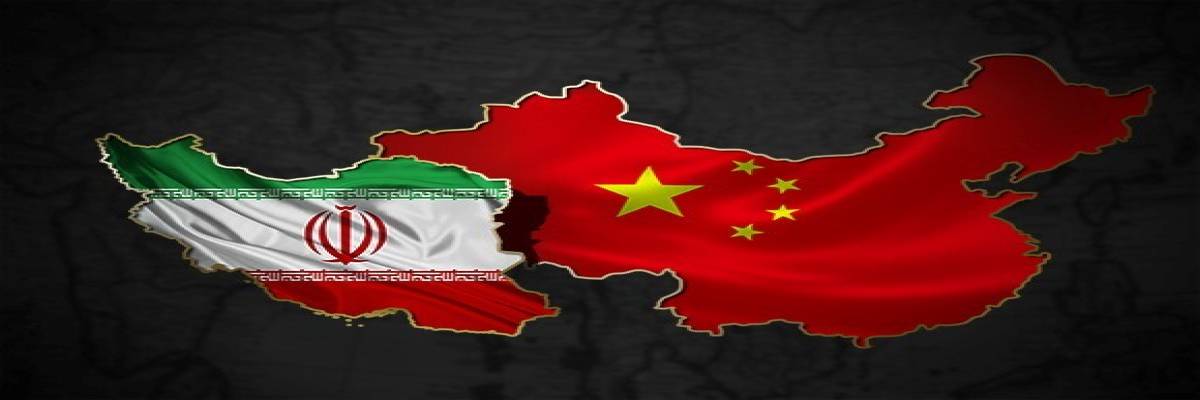1731 Views
China’s Masterstroke: How the Us-Iran War Became Beijing’s Golden Ticket to Dominate the Middle East!
With the start of the Israeli regime’s war against Iran, and the subsequent cooperation of the United States with this attack, the ineffectiveness of international institutions was once again exposed. In the midst of this, some major powers such as China, by condemning the West’s actions and their double standards, are trying to highlight their role as a major power without double standards.
In this context, China’s official stance was clear and resolute: in response to US attacks on Iran’s nuclear facilities, it called them a “serious violation of the UN Charter,” a charter that prohibits the use of force without Security Council authorization or in self-defense. China’s Foreign Ministry declared these attacks caused “serious damage to the purposes and principles of the UN Charter and international law.” At the Security Council’s emergency session, China’s ambassador Fu Cong called the action a violation of countries’ national sovereignty and a breach of the non-proliferation regime. This stance aligns with Beijing’s long-term strategic and ideological positions: fundamental opposition to unilateral military intervention, defending countries’ territorial integrity, and upholding international law. China presents itself as a guardian of international law-based order, labeling the US attack as “unilateralism,” and seeks to boost its international legitimacy.
Furthermore, in the tense atmosphere following the US attack and increased Western diplomatic pressure on Iran, China sees a golden opportunity to strengthen strategic ties with Iran. In fact, China now considers Iran’s market as untapped territory and seeks to monopolize it to further improve its economic standing in the region. With Western companies pulling out, China can offer oil contracts and discounts to Iran and invest in its energy sector. Simultaneously, joint naval drills such as “Maritime Security Belt 2025” in the Gulf of Oman demonstrate the depth of bilateral cooperation. Through this approach, China aims to become a reliable partner and US alternative in the region, positioning itself as a pillar of regional security order.
China’s opposition to US attacks is not merely legalistic; it also reflects its significant concerns about regional stability and energy routes. The Persian Gulf—especially the Strait of Hormuz—supplies around 20–25% of the world’s oil and gas. Chinese officials and state media have repeatedly warned about the consequences of traffic or disruption in maritime shipping routes.
Given its heavy dependence on Middle Eastern oil, China fears price fluctuations or supply disruptions that could weaken its economic growth. For this reason, China may actively engage in political mediation, increase its naval presence in the region, and cooperate with regional partners to prevent market shocks. Essentially, China does not want to lose its secure and cheap energy supply route, as increased costs would bring numerous challenges to its economy.
Additionally, by condemning US attacks and proposing peace, China wants to portray itself as a responsible actor and defender of multilateralism. China’s Foreign Ministry called for a Security Council resolution, in cooperation with Russia and Pakistan, to achieve an immediate ceasefire. This approach has two goals: discredit US coercive policies and guardianship, and present China as a provider of “global public goods” like peace, diplomacy, and respect for the law. China hopes to gain more credibility among the Third World and international institutions through persuasion rather than force.
US attacks could create a strategic vacuum that China could fill, particularly in Iran, Iraq, Syria, and Lebanon. Through expanding economic ties, Silk Road infrastructure projects, and military cooperation like joint exercises, China can secure a stronger foothold in the region.
If China can present itself as a stabilizer and reliable partner, regional countries may gradually shift away from Washington. Meanwhile, China’s presence in multilateral institutions like the Security Council and its offer of reconstruction and energy projects could enhance its image as a successful peace model versus the American military presence.
This structural shift may create a new “geo-economic paradigm,” where China uses soft power, economic dependency, and diplomacy to counter US military influence. This rivalry could become a showdown between US military dominance and Chinese diplomatic style.
Ultimately, if China plays an effective role in resolving the crisis—not merely as a passive observer—it will be seen as a constructive mediator. Otherwise, failure to exert influence could push China back toward confrontation with the US in Taiwan Strait and the South China Sea, where the US holds significant military power.
In the end, China’s approach to this tension is not just a matter of statements and diplomatic posturing—it is a real test of its ability to play a constructive global role. If China exploits this opportunity in a sustainable and meaningful way, it will be recognized as a genuine option for crisis resolution. But if it fails, it risks ceding the stage to US military power and losing a key strategic opportunity.
*Translated by Ashraf Hemmati from the original Persian article written by Amin Mahdavi

Comment
Post a comment for this article